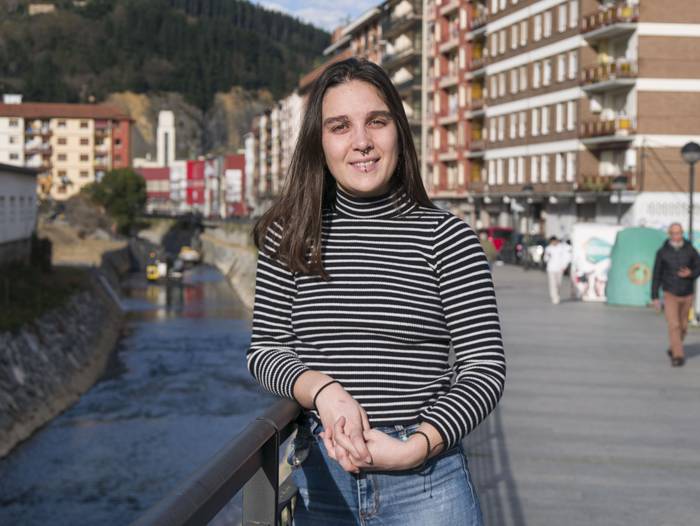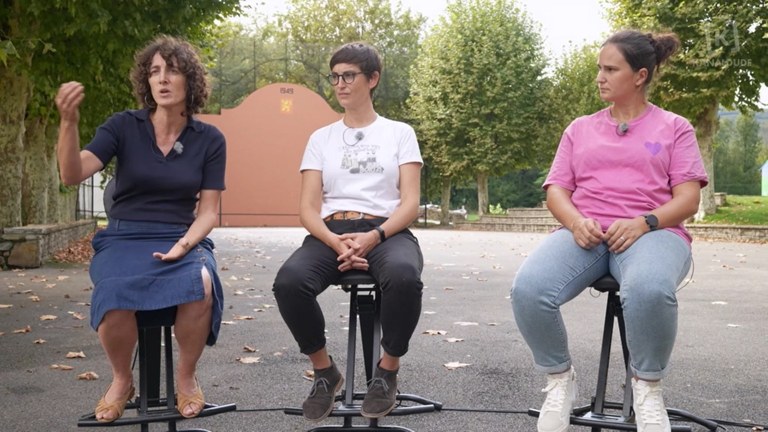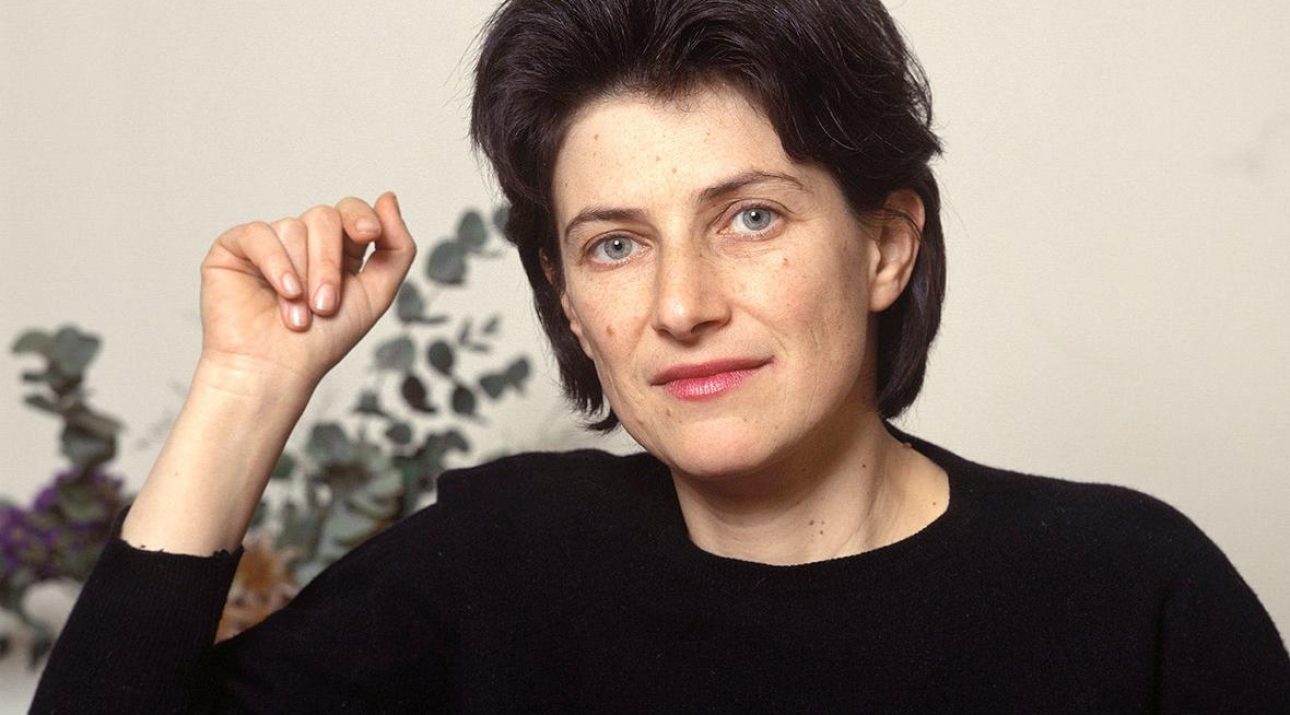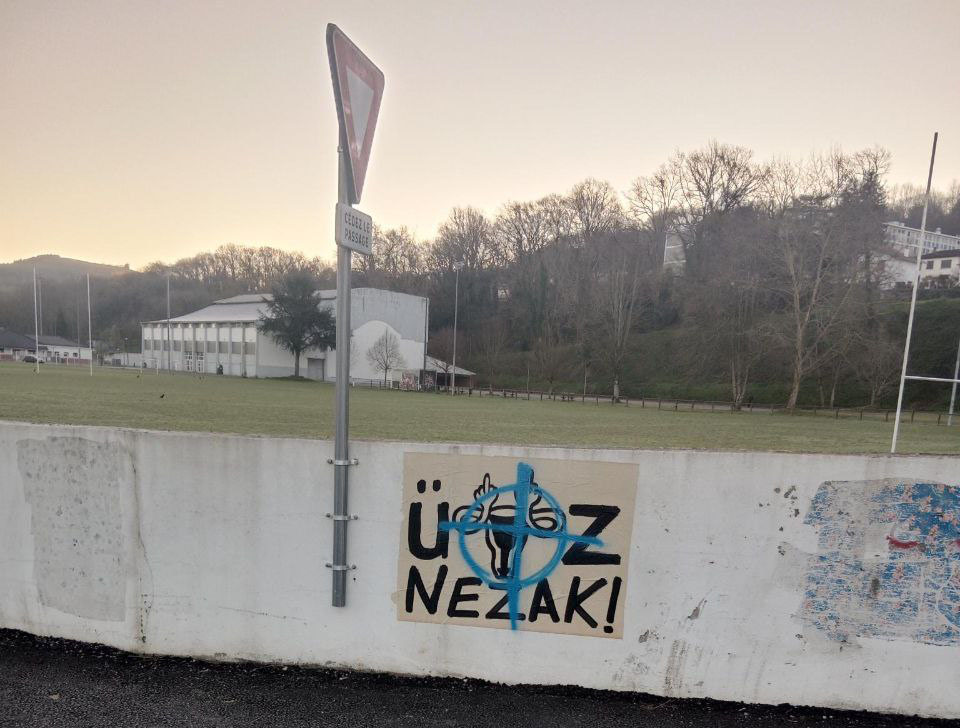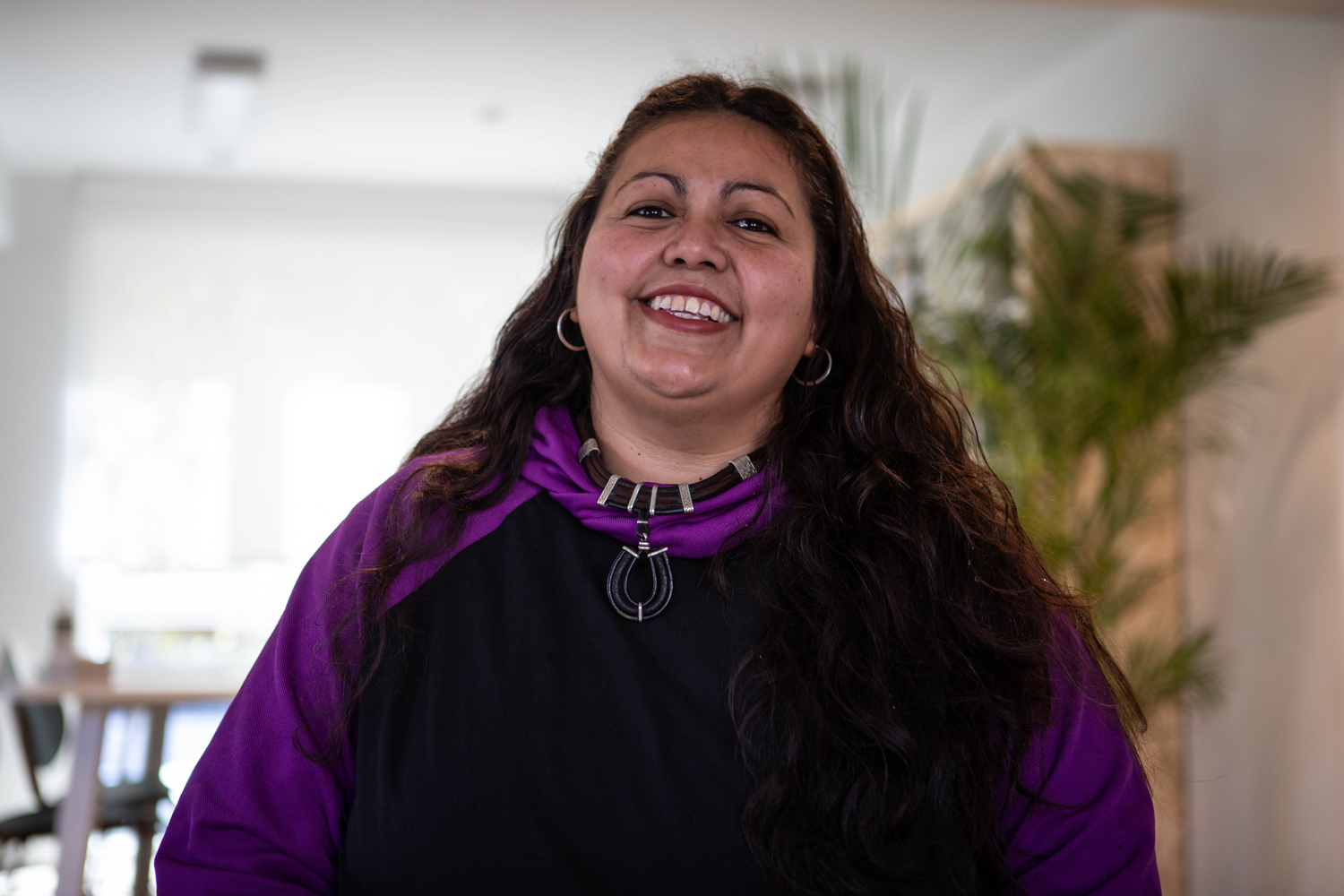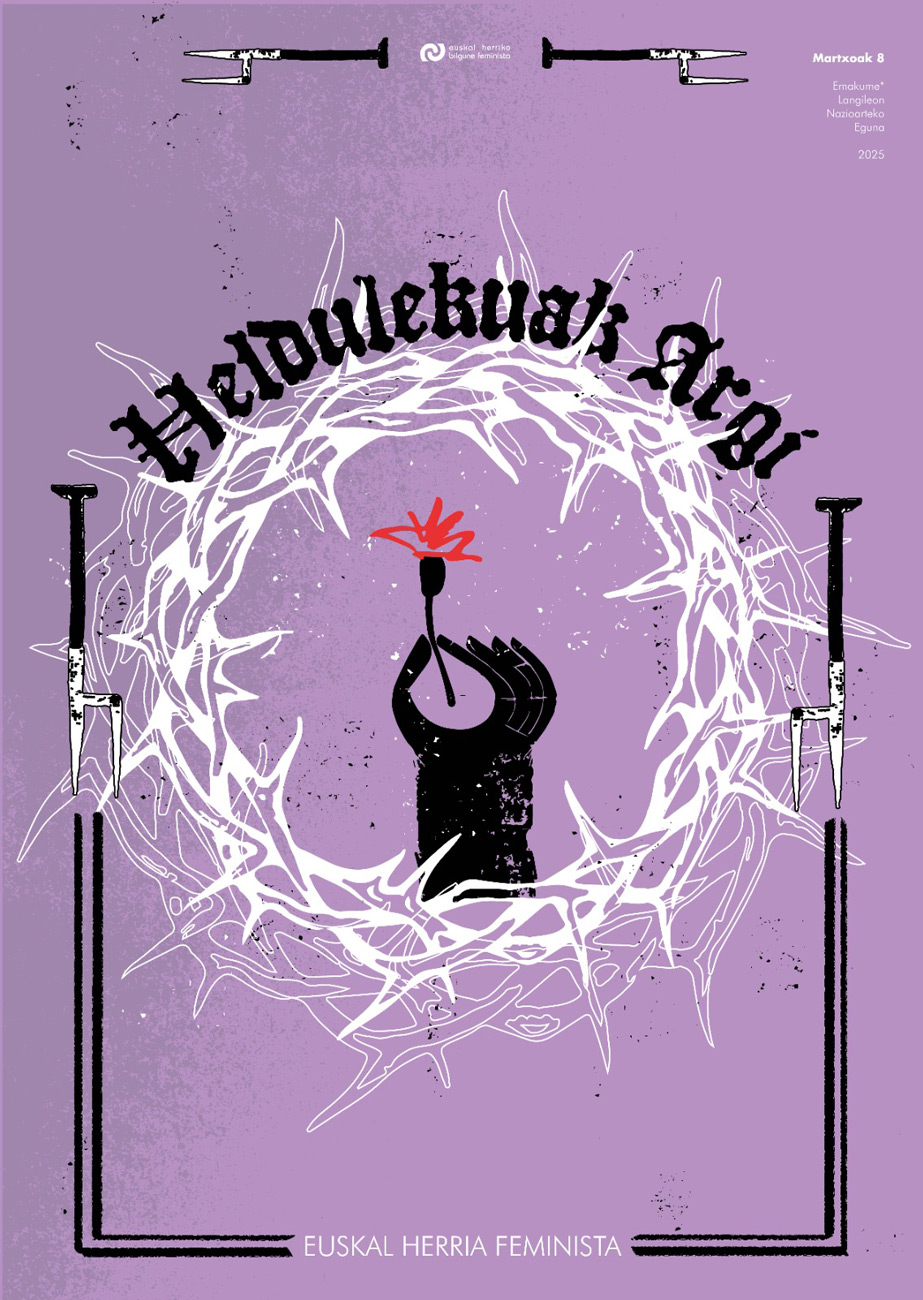"I'm much more proud to keep running after 50 years than that first marathon."
- On April 19, 1967, Kathrine Switzer ran at the Boston Marathon (1947), becoming the first woman to officially participate in a marathon. Since the race regulations and the registration sheet did not detail gender, the “K.V.” has been presented. He signed up as “Switzer.” With this abbreviation, without gender marks, he violated the unwritten rule that only allowed for male participation and managed to be admitted to run the marathon. She has since worked to strengthen the presence of women in sport and is currently empowering women through the 261 Fearless Association.

Korrika occupies an important place in your life. Where does the hobby come from?
At the age of twelve, my father told me, not a spectator, that I had to participate. As I wanted to get into the hockey team, I measured the garden of the house and gave it seven laps a day, a kilometer in total. I trained to get into the hockey team that focused on that kilometer of day to day. The truth is, I didn't know anything about hockey, my thing was running.
On the contrary, you had to defend forcefully that being a woman did not make you incapable of running.
The men approached my mother and asked her what was happening to her daughter and why she was running. Many thought it was strange and special. When I started running seriously in deep and long-distance racing, some women showed my reluctance to accept what I was doing, it was women who came in with me. At first I went from them, but then I realized what was going on. “They don’t participate because they are afraid.” And I wanted to change that attitude, because I knew that the feeling of running is wonderful, that makes you feel autonomous and powerful. I wanted to share those feelings with women.
When you ran the first marathon in Boston, you broke it with tradition. I imagine you've provoked diverse attitudes in people.
There were many myths about women and sport: There were beliefs like “you’re going to become a man,” “you’re going to get hair out of your chest,” or “you’ll get a uterus, you’ll never have children,” which frightened women. These messages seemed silly to me, because the idea of running 42 kilometers was a challenge for me, not an impossibility. When I realized all these myths and the influence they had on women, I was very disappointed and I wanted to convey the conviction that they could do a lot to women.
Men were afraid that korrika might somehow affect their wives, which made them suspicious. But when I started running, the men thought it was a good idea, they liked to see me running. But it took a long time to change things.
“The idea of running 42 kilometers was a challenge for me, not an impossibility.”
Perhaps the time it takes to dismantle the ideology behind tradition?
Yes, that ideology had to be broken. If nobody does, people tell you that “you can’t do it.” That's why I said, "I will." I suffered the consequences: The director of the Boston Marathon wanted to take me out of the race and then I was kicked out of the federation, I was not allowed to participate in anything. I kept running and I was invited to participate in other races. I think the more times she saw me running, the more women were encouraged to run.

About to be kicked out of the Boston Marathon, your partner and coach helped you finish the race. How did it make you feel that gesture?
I didn't want my partner to come to the race. “You shouldn’t come to the race because you’re not a runner,” I told him, and he said, “If you can do it, I too.” It was very vain. Good athlete yes, but not good runner. When he touched the head of the race he wanted to cast me, I became very angry with him, because I didn't beat people, because I'm not violent. But this man was beating me, and he wanted to take my back off. The truth is, my partner helped me. We can therefore say that one man assaulted me and another man saved me. But at the time, I also became active, because my decision was to finish the race, assuming my responsibility for the decision. The coach also helped me a lot throughout the career, because I believed in me, because I trained a lot.
I have read to you that at the time when there was a dispute with the director, you were afraid. But you were able to turn that feeling into strength to achieve your goal.
I was scared to see myself under attack. I didn't know what I had done wrong. I thought I'd bothered the race, but I knew that if I didn't reach the end, people wouldn't believe that women were able to run the marathon. “Even though women strive to do these things, they are not able to do so,” they would say, so I had to prove that I was able to finish the race.
“I knew that if it didn’t reach the end people wouldn’t believe that women were able to participate in the marathon.”
I kept running, gathering my strength and losing anger. The director was an ignorant, I forgave him and kept running, thinking, “I will convince you later.” I also felt angry about women, I wondered, "Why aren't there more women with me?" I realized that if they had had the chance to run, they would be there, and I came to the conclusion that I should extend the possibility of running to more women. At that time the marathon became a career path, a life plan.
She has advocated that women have a place in male sports, but she also sees the need for careers for women. There will be those who say that ideas are incompatible.
When I've run exclusively for women, many men have told me: “You broke the gender barrier, why now you just organize careers for women?” I tell you that there are a number of different reasons. First of all, it allows women to participate in an environment that doesn't create fear for them. On the other hand, women have to learn that they are capable of developing a strategy, of taking responsibility for their rhythm, and I believe that the only possibility of internalizing it is careers for women. Running women and men together is beautiful, but sometimes we need our own space.
“It’s nice for women and men to run together, but sometimes we need our own space”
Almost all of us represent you with the historical picture of 1967, I am and that is that it's been half a century and you keep running. Aren't you breaking the gender and age limit?
More and more of them publish my current photos, and that's interesting. “You’re too weak, too fragile, you can’t do that, get on, quiet, you can get a heart attack,” it tells older people. When a lot of people talk about the elderly, 50 years ago, women were talked about.
What has the road brought you from the end of the Boston Marathon to today?
I'm much more proud to keep running after 50 years than that first marathon. I'm the first woman running the Boston Marathon and 50 years ago. It's not proof that I'm great, it's a fact that half a century ago, there were very few women running. I think we have helped create a social revolution, because today millions of women run, strengthening their self-esteem, trust and health. That is the message that we have to convey to future generations, that is the message that will change the world.
Joan den urte hondarrean atera da L'affaire Ange Soleil, le dépeceur d'Aubervilliers (Ange Soleil afera, Aubervilliers-ko puskatzailea) eleberria, Christelle Lozère-k idatzia. Lozère da artearen historiako irakasle bakarra Antilletako... [+]
Endometriosiaren Nazioarteko Eguna izan zen, martxoak 14a. AINTZANE CUADRA MARIGORTAri (Amurrio, 1995) gaixotasun hori diagnostikatu zioten urtarrilean, lehen sintomak duela lau urte nabaritzen hasi zen arren. Gaitz horri ikusgarritasuna ematearen beharraz mintzatu da.
Duela aste batzuk, gurean egon ziren El Salvadorko eta Kanarietako emakumeen eskubideen aldeko hainbat aktibista. Sexu- eta ugalketa-eskubideez eta eskubide horiek urratzeak emakumeengan dituen ondorioez aritu gara; hala nola El Salvadorren berezko abortuak izanda homizidio... [+]
Zuberoako ohiturei buruzko bi liburu ditut gogoan. Batek XX. mendean aritu izan diren 180 dantzari eta soinulari aipatzen ditu. Haien artean, emakumezkorik ez da agertzen. Besteak, pastoralei egiten die errepasoa eta hor emakumeak aipatu aipatzen dira, baina omisio esanguratsuak... [+]
1984an ‘Bizitza Nola Badoan’ lehen poema liburua (Maiatz) argitaratu zuenetik hainbat poema-liburu, narrazio eta eleberri argitaratu ditu Itxaro Borda idazleak. 2024an argitaratu zuen azken lana, ‘Itzalen tektonika’ (SUSA), eta egunero zutabea idazten du... [+]
Donostiako Tabakaleran, beste urte batez, hitza eta irudia elkar nahasi eta lotu dituzte Zinea eta literatura jardunaldietan. Aurten, Chantal Akerman zinegile belgikarraren obra izan dute aztergai; haren film bana hautatu eta aztertu dute Itxaro Bordak, Karmele Jaiok eta Danele... [+]
Antifaxismoari buruz idatzi nahiko nuke, hori baita aurten mugimendu feministaren gaia. Alabaina, eskratxea egin diote Martxoaren 8ko bezperan euskal kazetari antifaxista eta profeminista bati.
Gizonak bere lehenengo liburua aurkeztu du Madrilen bi kazetari ospetsuk... [+]
Pertsona lodiek lodiak izateagatik bizi izan duten eta bizi duten indarkeriaren inguruan teorizatzeko espazio bat sortzea du helburu ‘Nadie hablará de nosotras’ podcastak. Cristina de Tena (Madril, 1990) eta Lara Gil (Fuenlabrada, Espainia, 1988) aktibista... [+]
Martxoak 8an egindako pintaketak gainetik margotu dituzte ikur faxistekin Zuberoako hiriburuan. Horren aurrean elkarretaratzera deitu dute, astelehenean.
Martxoaren 8a Getxo bere bizitokian igaro du: kumbia dekolonial eta antiarrazista topaketa antolatu du Algortako Herriko Tabernan, Abianen, Hija del Nopal DJrekin batera.
Argentinatik Getxora migratu zen Celeste Agüero, kantutegi herrikoi batekin eta poesia xuxurlatzeko... [+]
Mugimendu feministak manifestazioak egin ditu goizean Donostian, Gasteizen eta Iruñean eta arratsaldean Baionan eta Bilbon. Oinarrizko irakurketa partekatu dute, eta horri gehitu diote hiri bakoitzean bertako problematika, eragile eta ekimenen erreferentzia.
Bilgune Feministak Heldulekuak argi, Euskal Herria feminista leloa baliatu du M8an, azpimarratzeko feminismoak ematen dituela “datorrenari aurre egiteko tresnak”, eta gogorarazteko faxismoaren gorakadaren testuinguru hau helduleku horretatik irakurri eta borrokatu... [+]
MAITE: (biharko eguna antolatzen bere buruaren baitan) Jaiki, gosaldu, bazkaria prestatu, arropa garbitu, etxea garbitu, gizon hori jaiki, seme-alabak jaiki, hiru horien gosaria prestatu, haiek agurtu, erosketak egin, lanera joan, seme-alabak eskolatik jaso, merienda eman,... [+]












